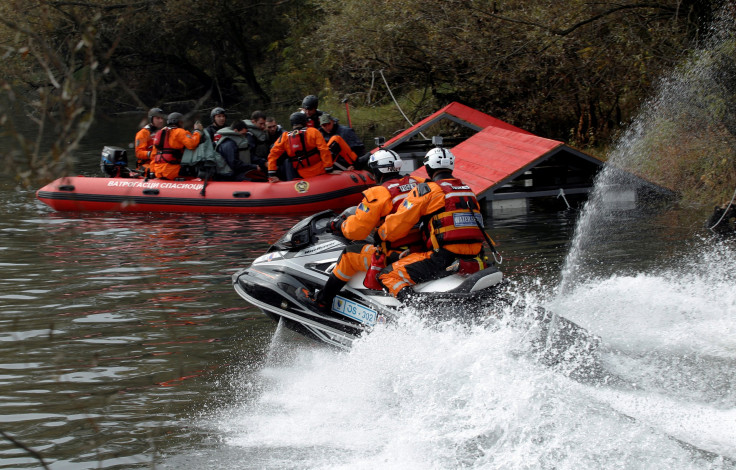Russia-US War? NATO, Moscow Hold Separate Military Drills In Balkans Amid Growing Tensions

NATO and Russia conducted disaster-relief drills just 150 miles apart in Europe's southeastern Balkan region Thursday.
The four-day NATO exercise in Montenegro began Monday, involving NATO's Euro-Atlantic Disaster Response Coordination Centre (EADRCC) and a mobile laboratory that analyzes chemical, biological, radiological and nuclear contamination. The country, which is the size of Connecticut, is currently in the process of joining NATO, something that Russia sees as unacceptable.
Meanwhile, about a distance of 150 miles northeast, hundreds of paratroopers from Russia and Belarus deployed into neighboring Serbia for a separate two-week exercise called "Slavic Brotherhood." The Russian military reportedly said that the drills will take place near Belgrade until Nov. 15.
According to analysts, the proximity of the two drills — around the distance from New York to Baltimore — was likely no coincidence. Analysts believe that the drills were aimed at both sides marking their territory amid growing tensions between Russia and the West.
"Russia wants to show that it can intimidate NATO ... and NATO is saying to Russia, 'If you show up, we'll be there as well,'" Igor Sutyagin, an expert at the Royal United Services Institute (RUSI), a London-based think tank, said, according to NBC News.
Last month, reports surfaced that Russia moved ships carrying long-range cruise missiles into the Baltic as NATO urged its members to commit to the biggest military buildup near Russia's borders since the Cold War.
In recent years, Washington and Moscow's relations have been strained over several international events. Russia has been criticized by the U.S. for its 2014 annexation of the former Ukrainian territory of Crimea. The two world powers have also been against each other over the Syrian Civil War, in which the U.S. supports the Syrian opposition and Russia backing close ally Syrian President Bashar Assad.
© Copyright IBTimes 2025. All rights reserved.





















